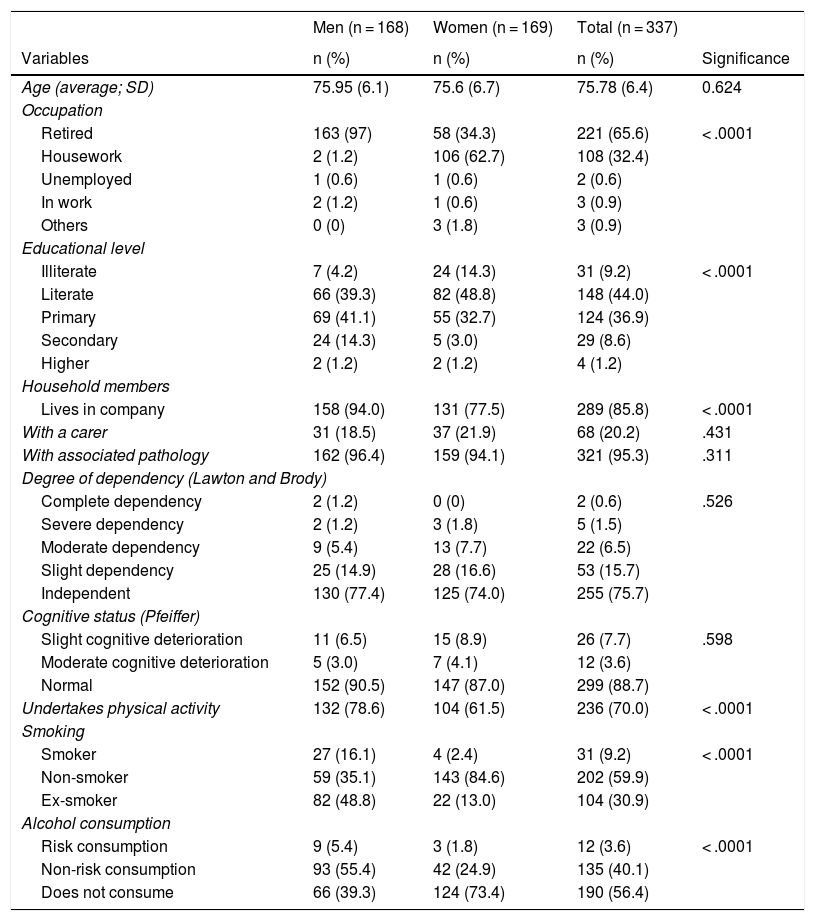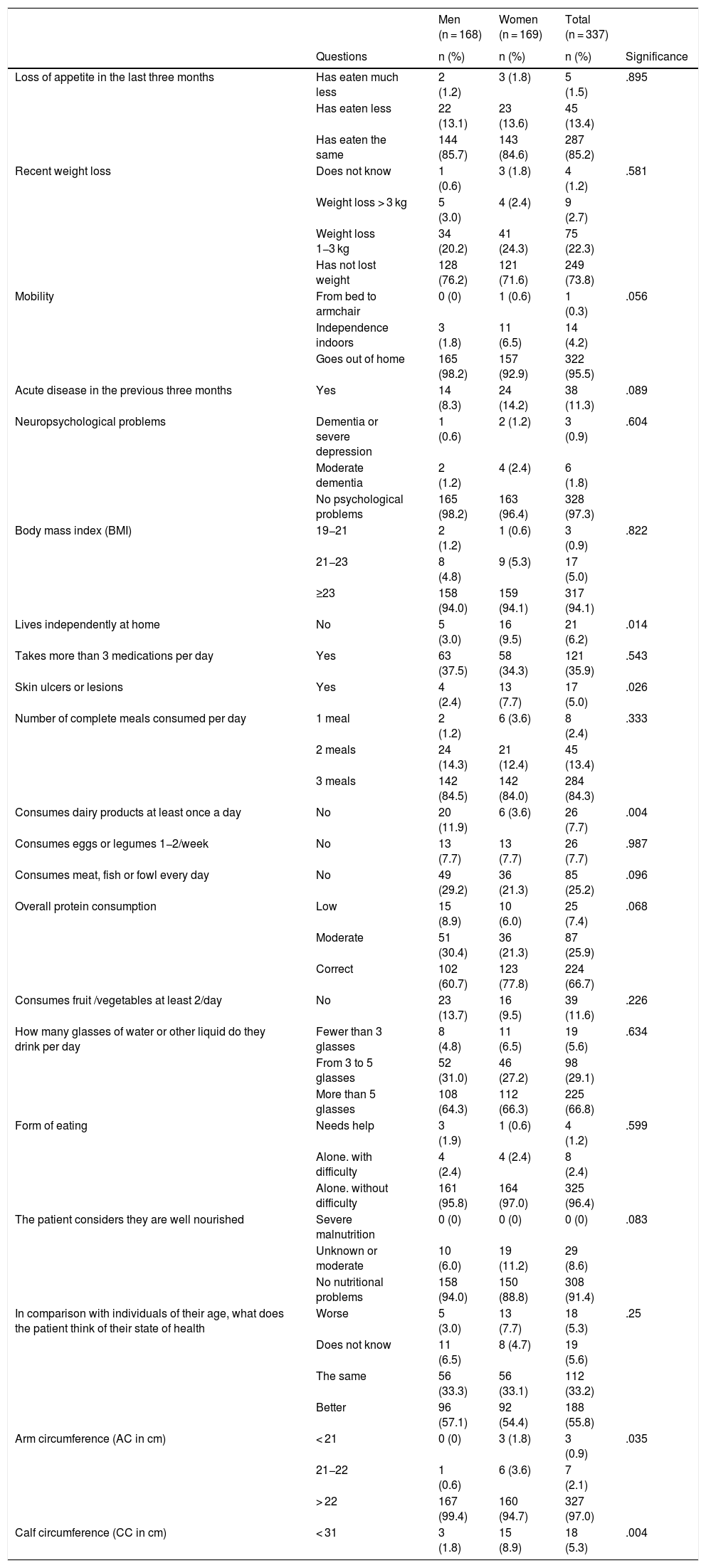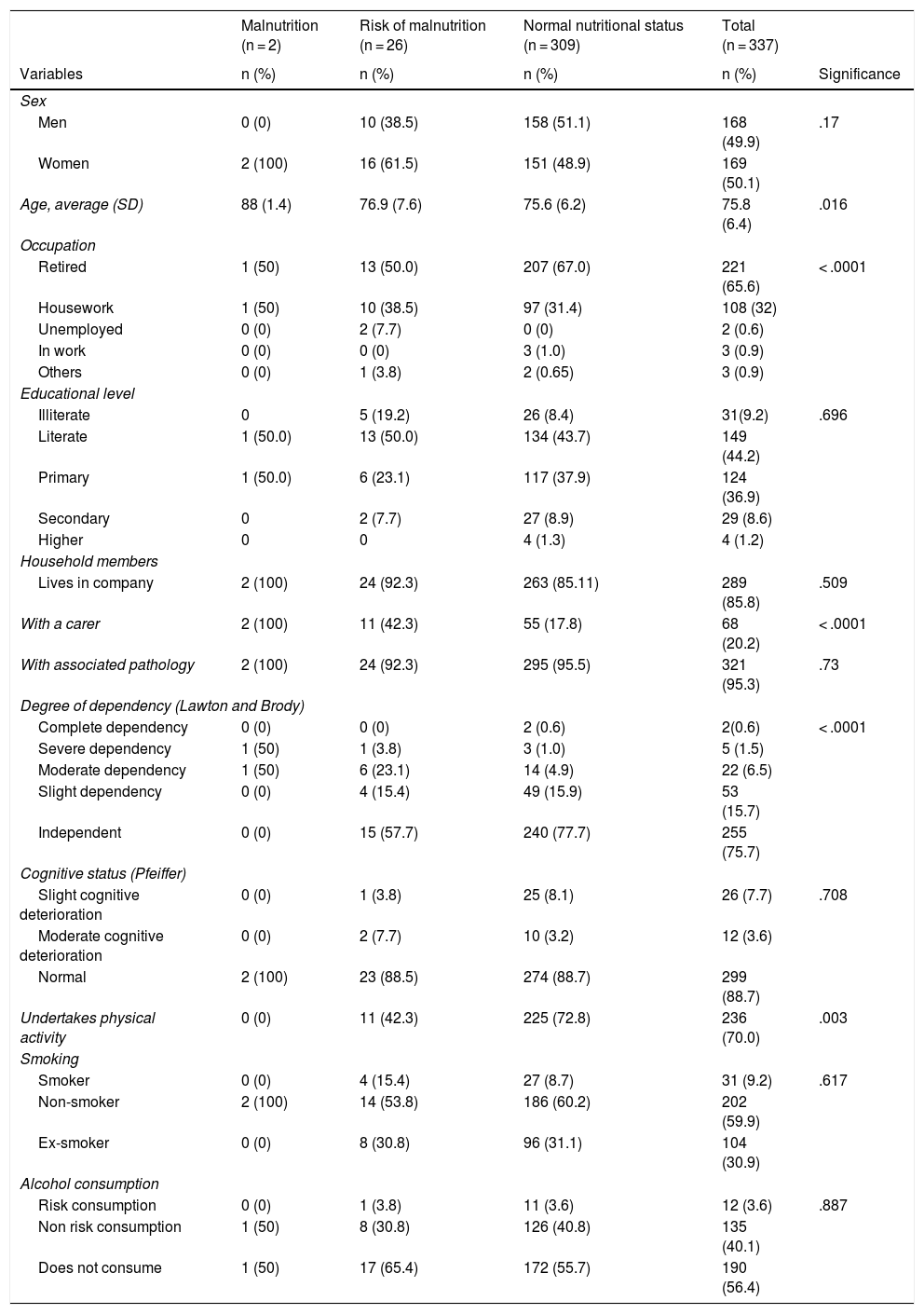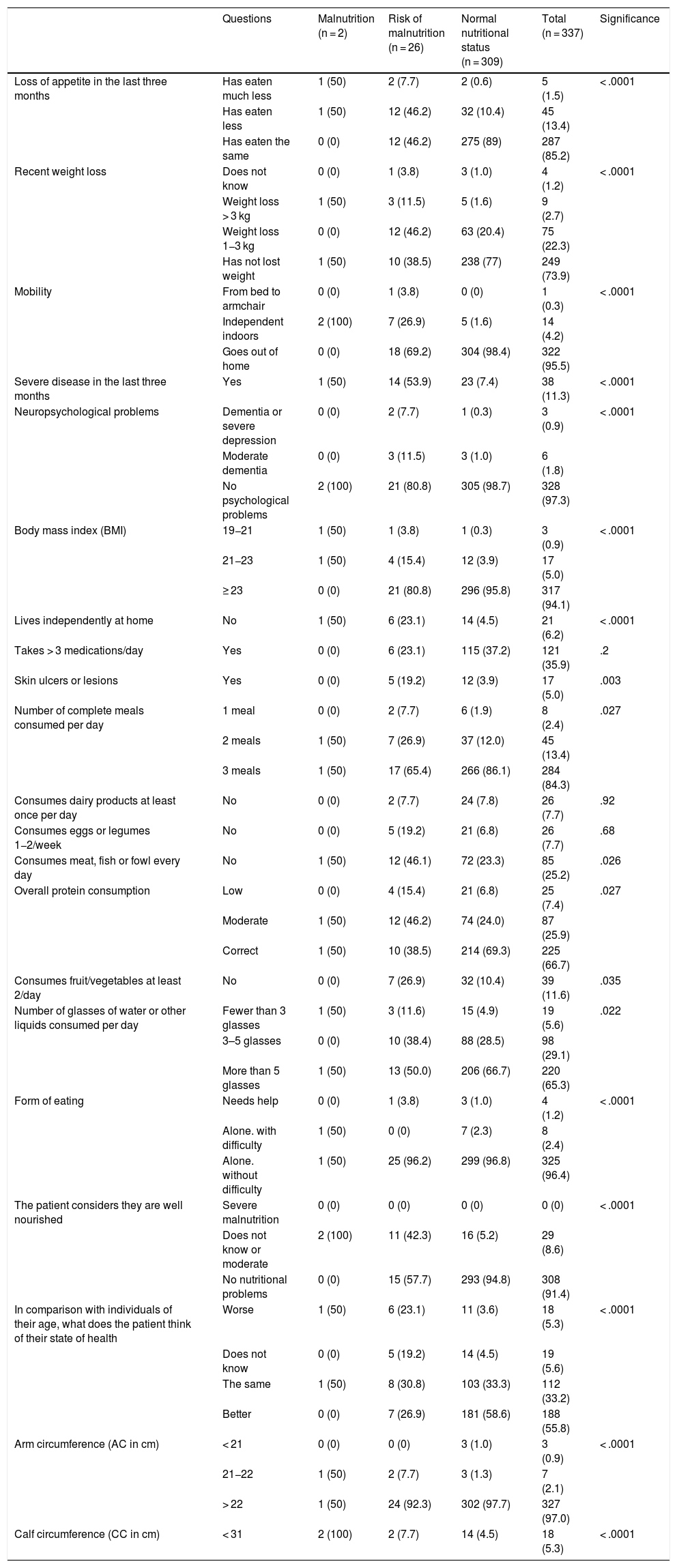To know the prevalence of risk of malnutrition in community-dwelling elderly (defined as aged > 65) attended in a Primary Care Center, to find the main factors associated to malnutrition risk and to evaluate the Mini Nutritional Assessment Questionnaire (MNA) MNA Short Form vs. MNA Full Test.
MethodDesign: Cross-Sectional study. Setting: Primary Care Center. Subjects: 337 participants visited in the Community Care Center. Mini Nutritional Assessment Questionnaire (MNA) was applied; sociodemographic and Health variables were collected as well as functional evaluation tests (Short Portable Mental Status Questionnaire and Lawton & Brody Instrumental Activities of Daily Living Scale). Clinical history information was taken from the Medical Records. Using MNA Full Test (MNA-FT) as the gold standard, sensitivity, specificity and predictive values of MNA Short Form (MNA-SF) were evaluated.
ResultsPrevalence according MNA-FT was 0.6% for malnutrition and 7.7% for malnutrition risk. No gender differences were found. The average age was higher in the population with malnutrition or at risk for malnutrition (P = .016). Significant association of malnutrition with having carer (P < .0001) or being more dependent (P < .0001) was found. MNA-SF showed an acceptable sensitivity (67.9%) and good specificity (92.6%).
ConclusionsCompared with other studies this data showed a low prevalence of malnutrition risk in community-living elderly using the MNA test. It is recommended to use the MNA-FT in order to avoid under diagnosing malnutrition with MNA-SF.
Conocer la prevalencia del riesgo de desnutrición de la población mayor de 65 años no institucionalizada, atendida en un centro de salud, y evaluar la versión corta frente a la versión larga del test Mini Nutritional Assessment (MNA) y conocer los factores relacionados con el riesgo de desnutrición.
MétodoEstudio descriptivo transversal en un equipo de atención primaria de salud en ámbito urbano. Participaron 337 pacientes mayores de 65 años atendidos en el centro. La recogida de datos se hizo mediante entrevista personalizada y revisión de la historia clínica. Se administró el MNA (versión corta [MNA-SF] + texto completo [MNA-FT]) y se recogieron variables sociodemográficas y de evaluación funcional (test cognitivos de Pfeiffer y de Lawton y Brody sobre actividades instrumentales de la vida diaria (AIVD) y antecedentes clínicos. Utilizando MNA-FT como gold standard se evaluó la sensibilidad, la especificidad y los valores predictivos de MNASF. Los participantes fueron informados de los objetivos del estudio y firmaron el consentimiento informado. El estudio obtuvo el visto bueno del Comité de Ética de referencia.
ResultadosSegún el MNA-FT la prevalencia fue del 0,6% de desnutrición y del 7,7% de riesgo, sin diferencias según el sexo. La media de edad era superior en los pacientes con desnutrición o riesgo de ella (P = ,016). Se relacionaba con desnutrición tener cuidador (P < ,0001) o mayor grado de dependencia (P < ,0001). El MNA-SF mostró aceptable sensibilidad (67,9%) y Buena especificidad (92,6%).
ConclusionesSe observó una baja prevalencia de riesgo de desnutrición entre los pacientes ambulatorios mediante el test MNA. Se recomienda el uso del MNA-FT dada la mejorable sensibilidad mostrada por el MNA-SF, evitando así el consecuente infradiagnóstico. Pacientes con cuidador, mayor dependencia y edad tienen más probabilidad de peor estado nutricional.











